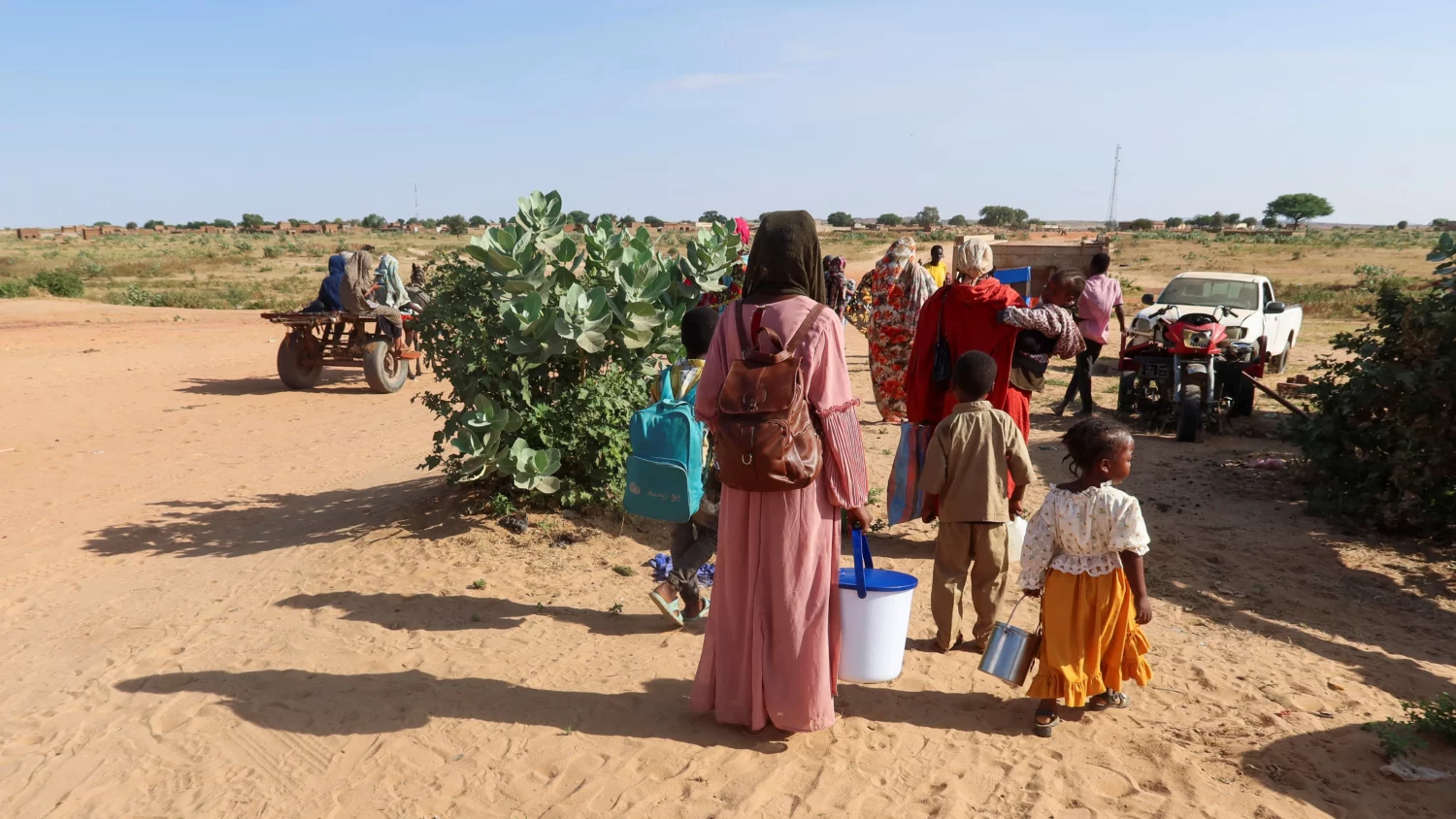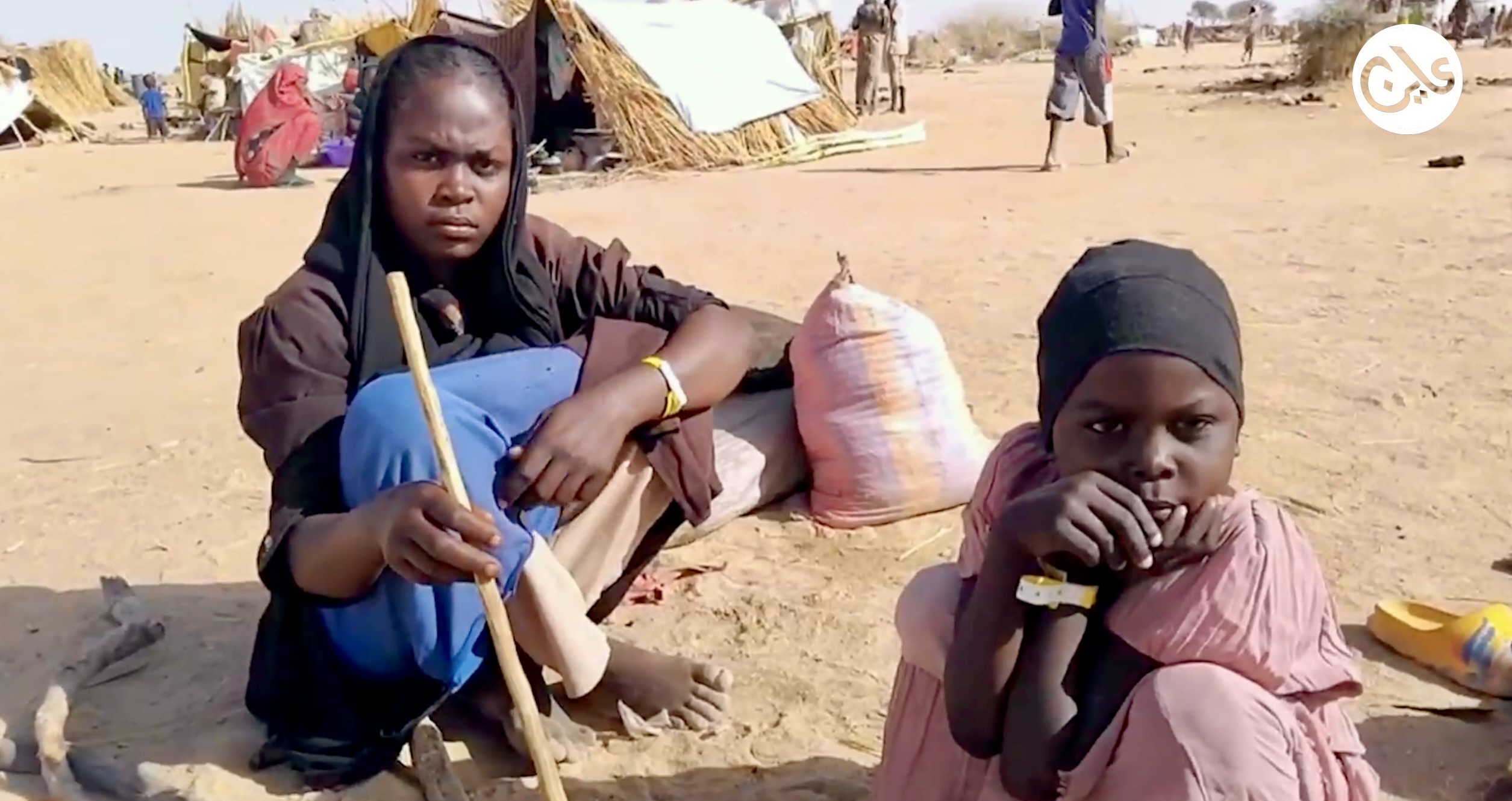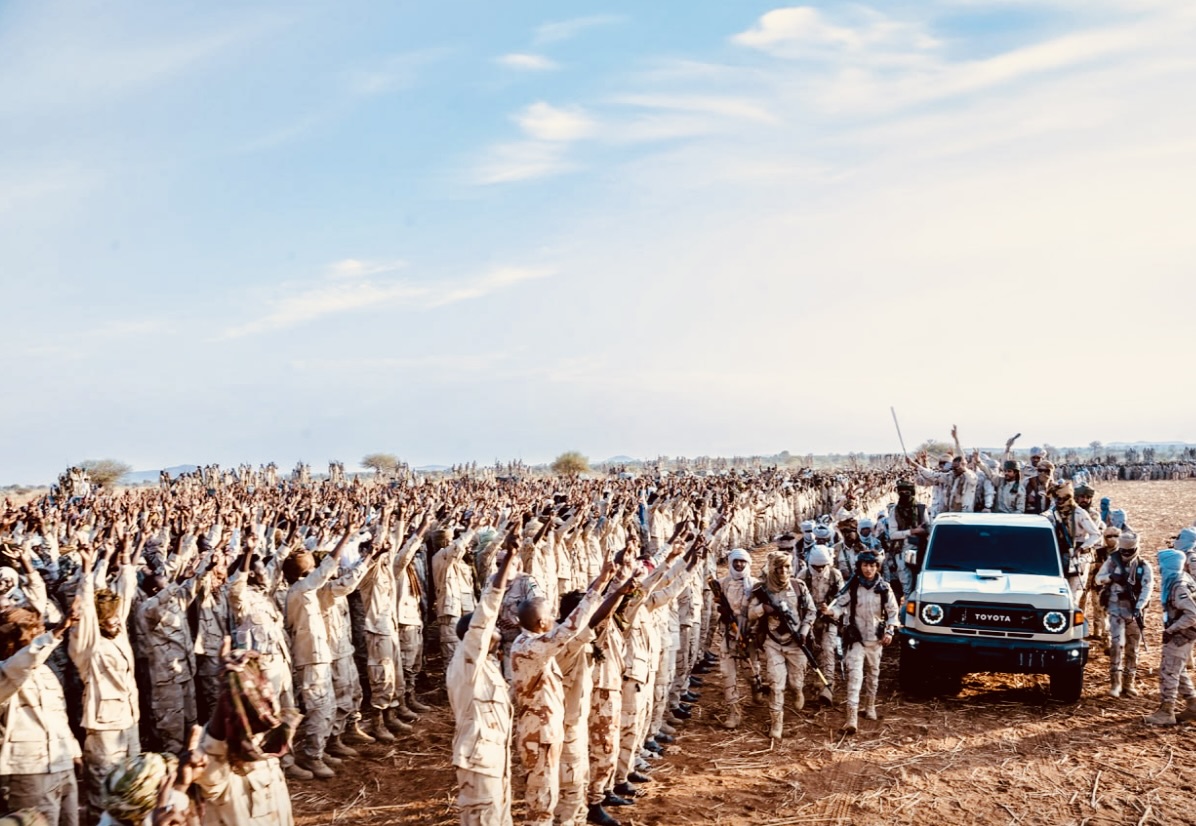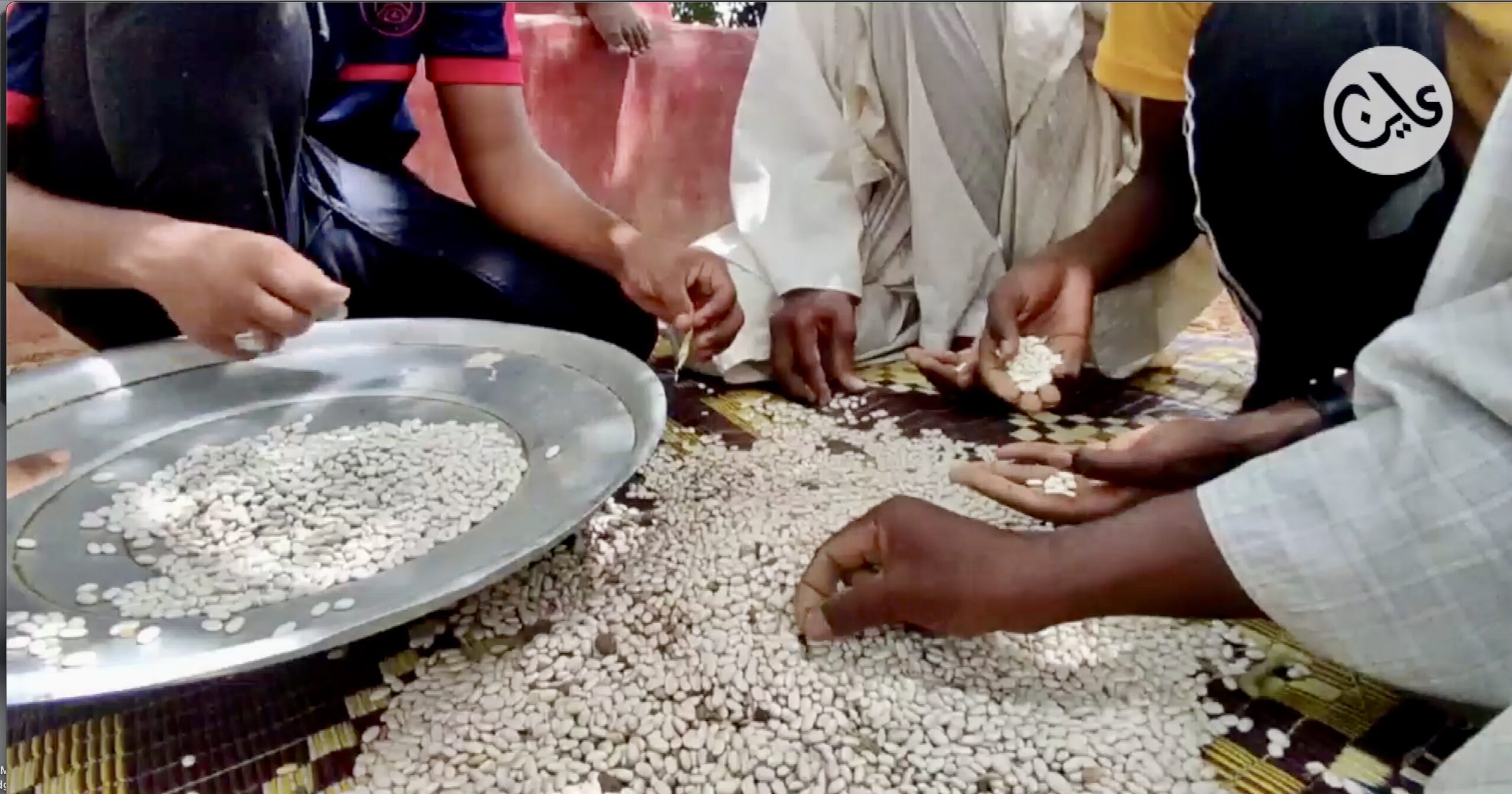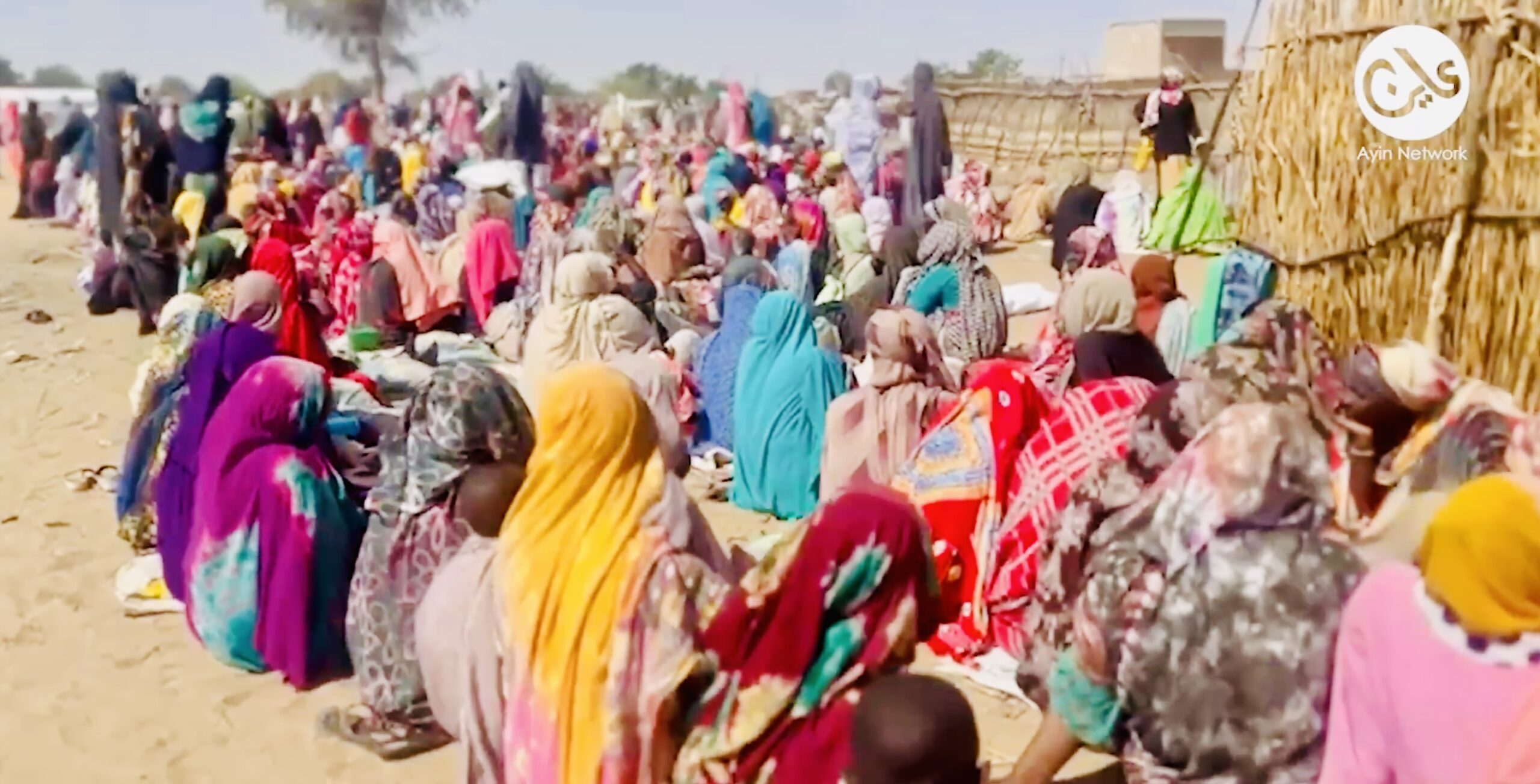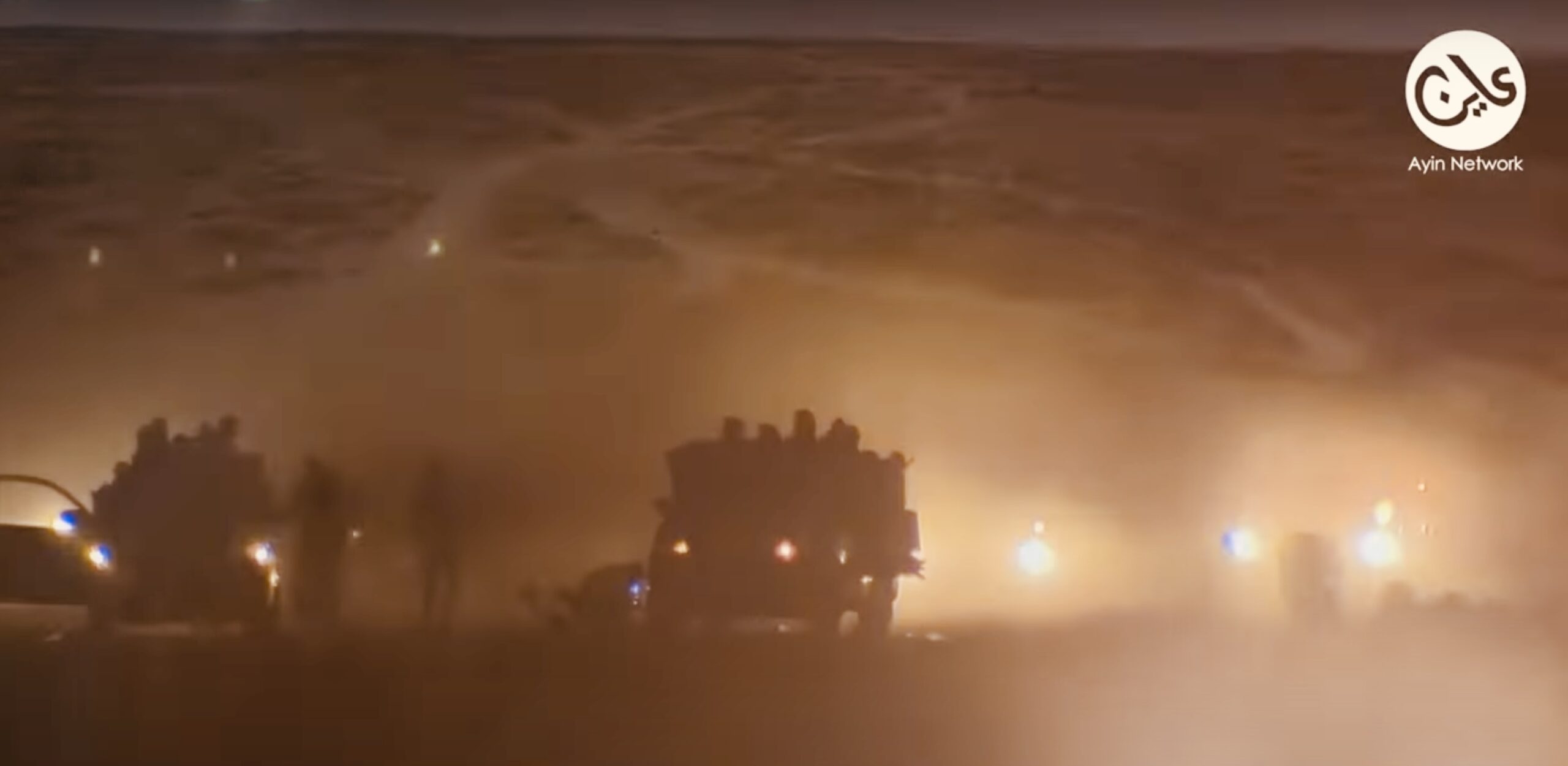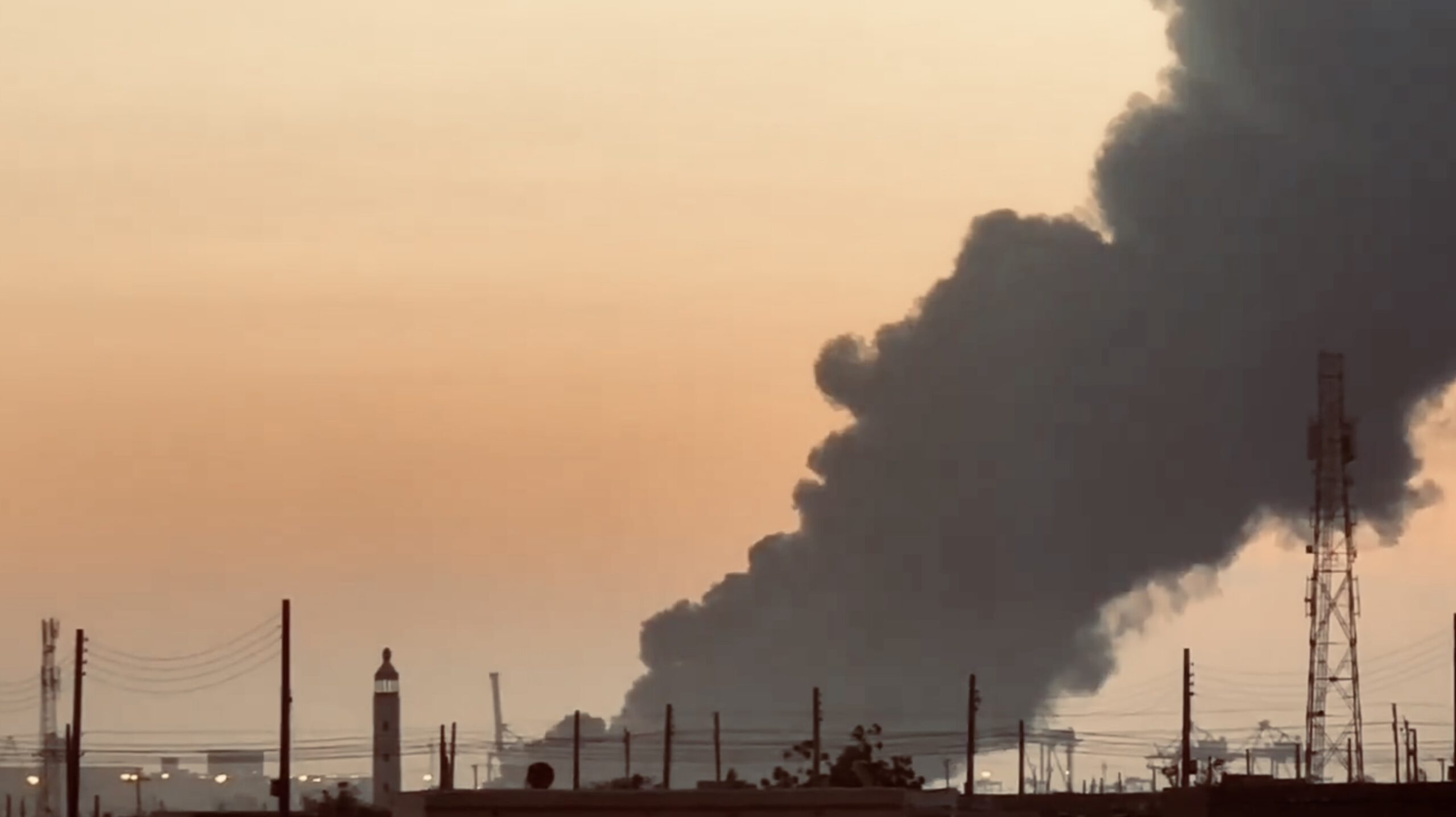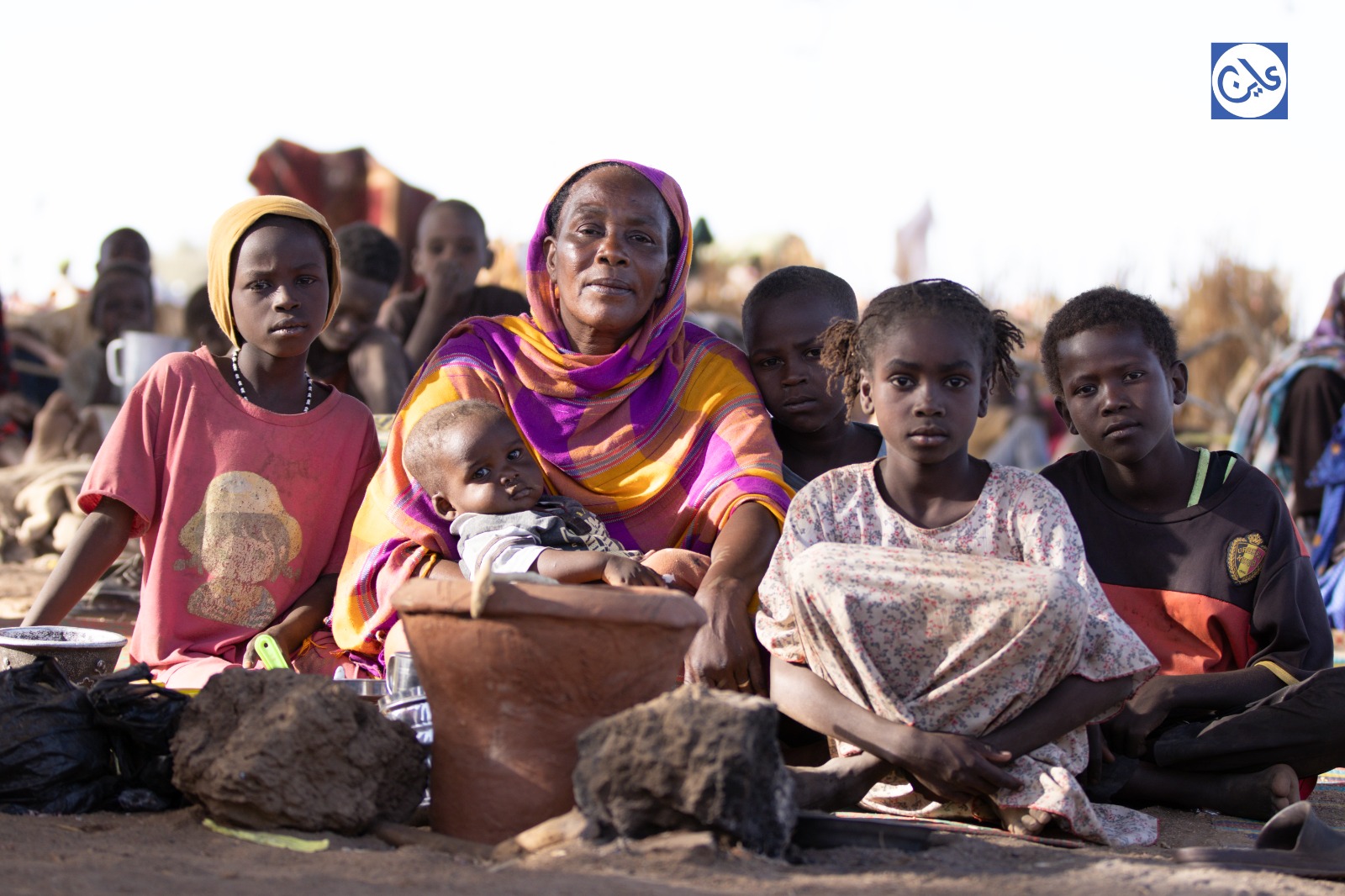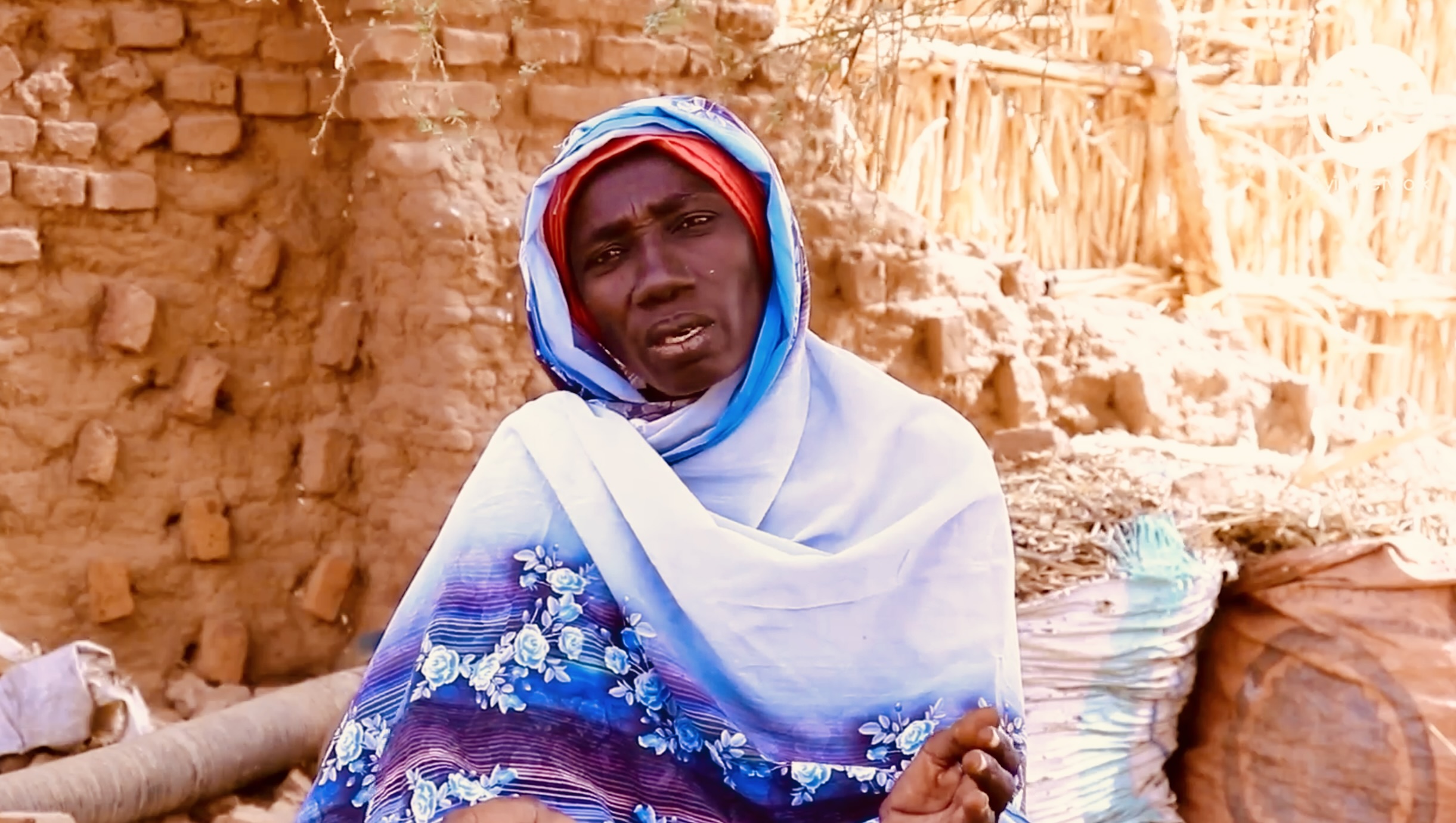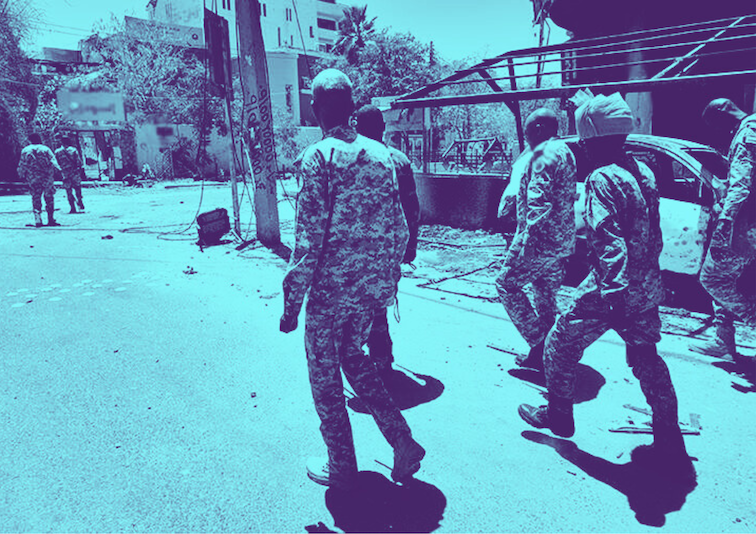Ardamata: One of the deadliest attack yet
23 November 2023
Ismail Mohamed* clung to the branches of a tree, hiding from the armed militias below, and while they did not see him –-he saw below him all the horrors inflicted on the residents of one of the displaced camps in the Ardamata area of West Darfur State. “I was hiding at the top of the tree when the Rapid Support Forces and their allies attacked the area,” Mohamed told Ayin. “I saw my uncle being killed, as well as my neighbour by gunmen.”
Mohamed remained hidden in a tree until evening. “After the attacks subsided, we buried 21 of the dead in a mass grave located on the north-eastern side of the camp, west of Al-Suwaiq. There was the body of a woman who we could not bury due to more attacks.”
On 5 November, after taking over the Sudanese Army’s 15th Division headquarters in the Ardamata area, the paramilitary Rapid Support Forces (RSF) attacked residential neighbourhoods in the region, most of which are camps for displaced people, residents told Ayin.
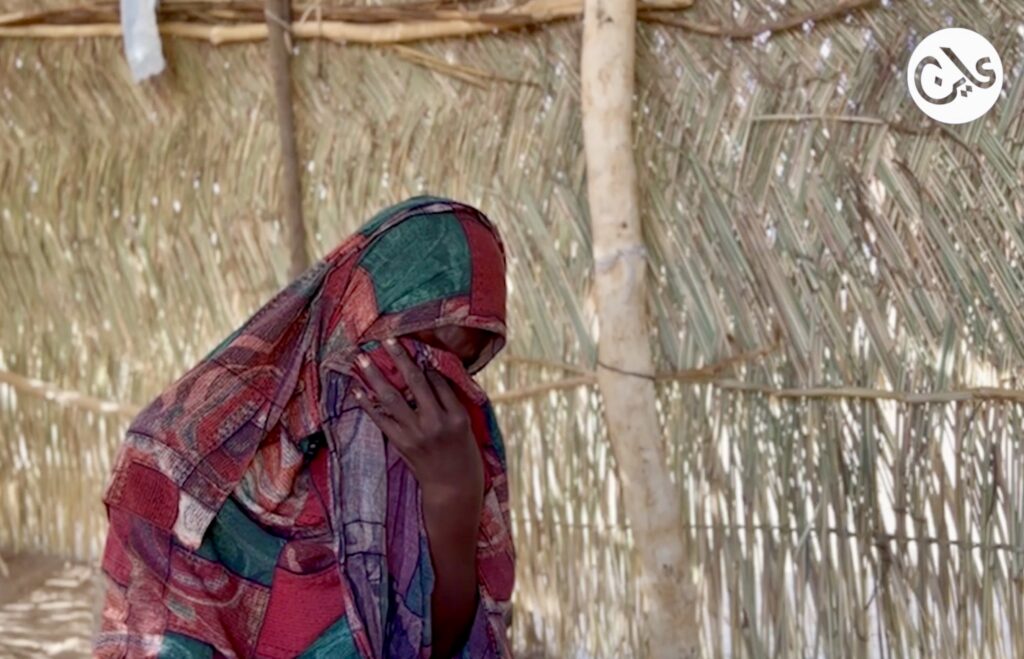
“After the army leadership fell, Rapid Support soldiers and militiamen attacked us with horses and motorcycles,” says survivor Fatima Abdullah. “They were killing men and male children in a barbaric manner. We kept running –but they were following us everywhere. I lost four of my sons while trying to escape and I do not know their fate until now.” Fatima told Ayin that she had previously been displaced by the conflict from the Al-Jabal neighbourhood in the state capital, Geneina, and had sought shelter in the Ardamata camps to escape the previous fighting. She and others did not expect to face more tragedy in such a short period of time.
The UN High Commissioner for Human Rights Spokesperson, Jeremy Laurence, said the RSF and allied militias targeted two camps for the displaced – Ardamata and Dorti – and the Al-Kabri neighbourhood. During these attacks, primarily against the Masalit, the armed groups “looted property, tortured IDPs, and executed many of them before leaving their bodies unburied in the streets.”
According to the Centre for Information Resilience, a human rights group that uses open-source, data investigations, satellite imagery shows fires in residential areas across Ardamata between 2 and 10 November, including at camps for displaced people.
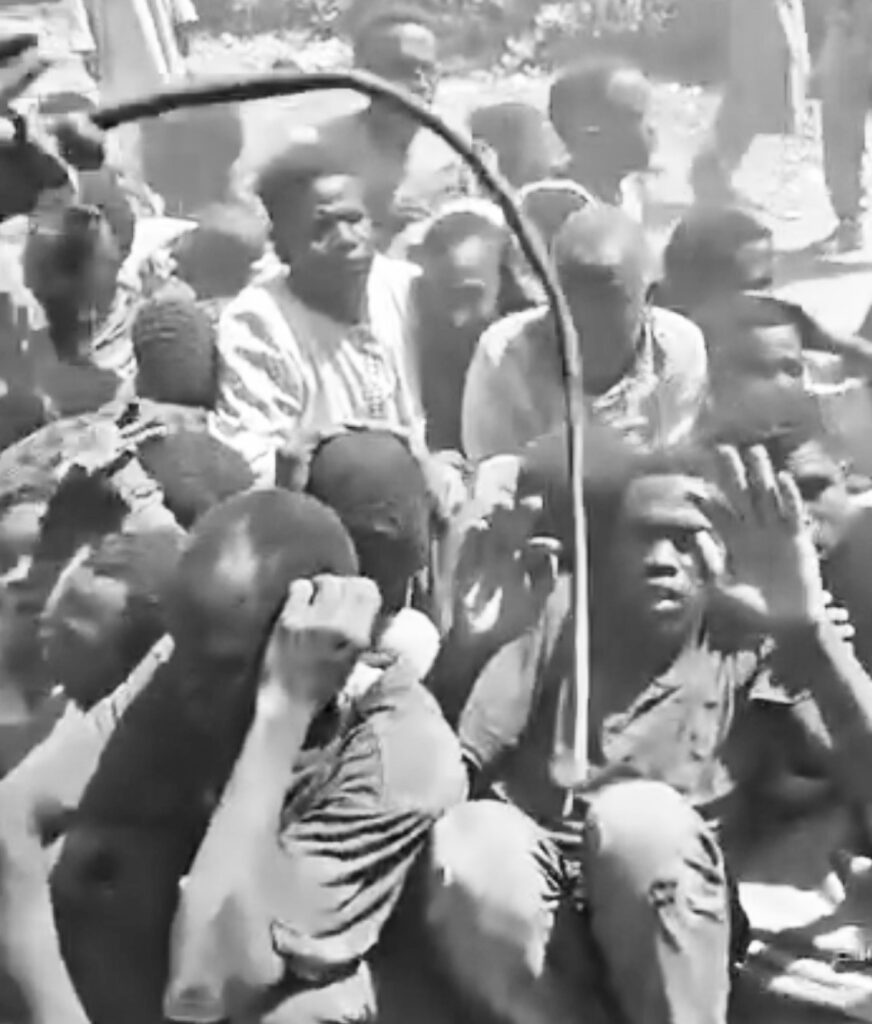
The Ardamata area, located northeast of West Darfur State’s capital, El Geneina, is divided by the Kaja Valley into two regions, and in the middle is the command of the army’s 15th Infantry Division. With the army command based in the area, Ardamata used to be considered one of the most calm and stable places in West Darfur, unaffected over the years by insecurity that has continually rocked the city of Geneina.
In mid-April, a war of dominance between Sudan’s army and the RSF took place. By 24 April, this conflict turned into civil clashes between Arab groups aligned with the RSF and the Masalit tribe, the traditional residents of Geneina. Ardamata became a destination for citizens searching for security and a modicum of stability.
After clashes intensified within Geneina, a community initiative comprising doctors, local administrators, and civil society groups, managed to develop a shaky truce between the two warring factions. The truce stipulated that the army would remain in the Ardamata region while the RSFF would control the eastern and southern parts of Geneina. The Al-Naseem neighbourhood was supposed to be the buffer zone between the two forces.
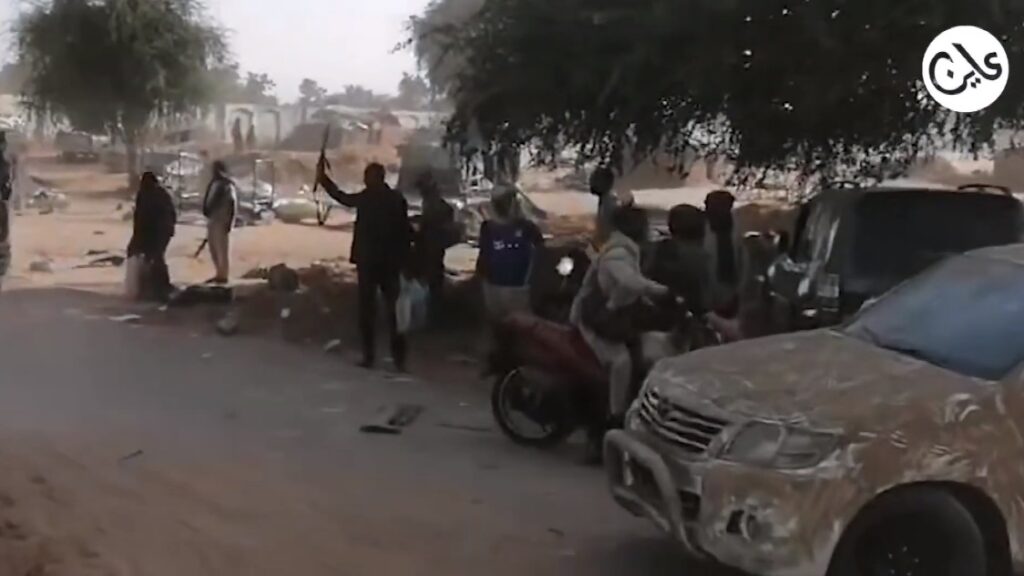
New killing
All this calm vanished after the fall of the main army base in the region on 4 November, for Ismail Mohamed and thousands of Ardamata residents. “We have a radio device that picks up sounds from the wireless devices used by the Rapid Support Forces. We heard them saying, tomorrow morning, we will start fighting from the Maqtaa Al-Kubri neighbourhood to the end of the Ardamata camp for the displaced,” Ismail Mohamed said. “After we heard these words, we decided to flee by any means possible, but when we emerged in a high area inside the camp, we saw the lights of cars surrounding the camp from all directions, and the siege continued until the morning when they began their attack and invaded the camp using horses.” Ismail told Ayin how the armed men went through the camp killing everyone, forcing thousands to scatter.
Ahmed Bahr al-Din, a local official and one of the survivors, told Ayin the RSF attack on Ardamata targeted the Masalit, including tribal leaders such as Al-Farsha Muhammad Arbab and two members of his family. “Most of the dead were lined up after they were arrested in the town of Ardamata – the main victims were displaced people who fled the RSF massacres last May and June,” the local official said. “They went to Ardamata and took shelter in the 15th Infantry Division –-only to be killed.”
While accurate statistics on the number of deaths are not available, the United Nations High Commissioner for Refugees and Sudanese doctors estimate around 800 people, primarily Masalit men and boys, were killed by the RSF and their allied militias. The attack represents one of the deadliest attacks yet to take place during the seven months of conflict.
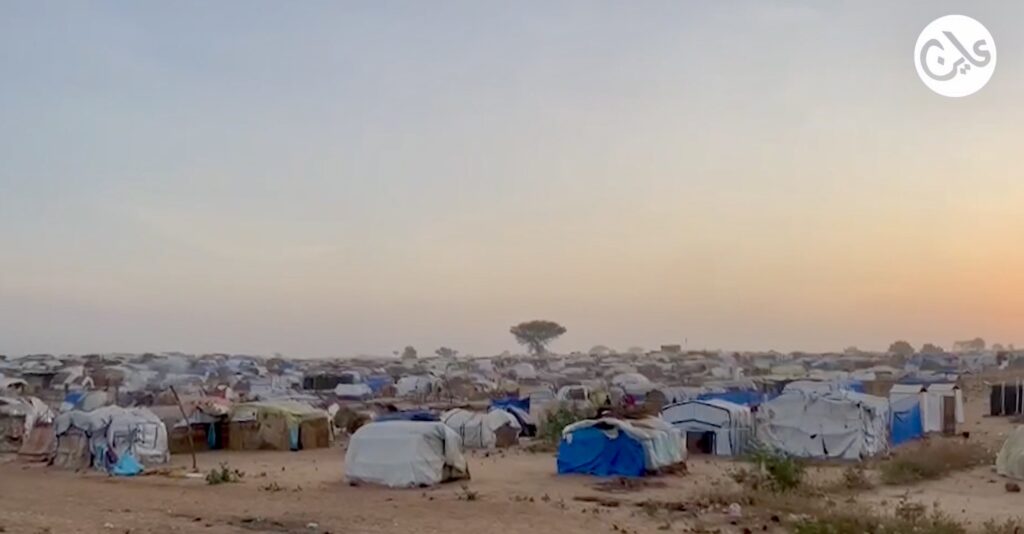
The UN says at least 8,000 people fled Ardamata and crossed into Chad – many of whom were forced to pay the RSF and allied militias bribes to reach Chad. Almost 450,000 Sudanese have crossed into Chad since June.
“The numbers of RSF that attacked the Ardamata region, and the Army General Command Headquarters was huge,” says Abdul Fadil, a retired army soldier. “After the fall of the army headquarters, the RSF and their allied militias intensified their bombing inside the neighbourhood where I lived in Ardamata, which killed so many people. We heard more than once during the bombing that 10 to 15 people were killed in one place.”
According to Laurence, 66 Masalit men were summarily executed on 5 November alone. In the Al-Kabri district, he added, men were separated from women and killed while hundreds more men were arrested and taken to RSF-run detention camps.
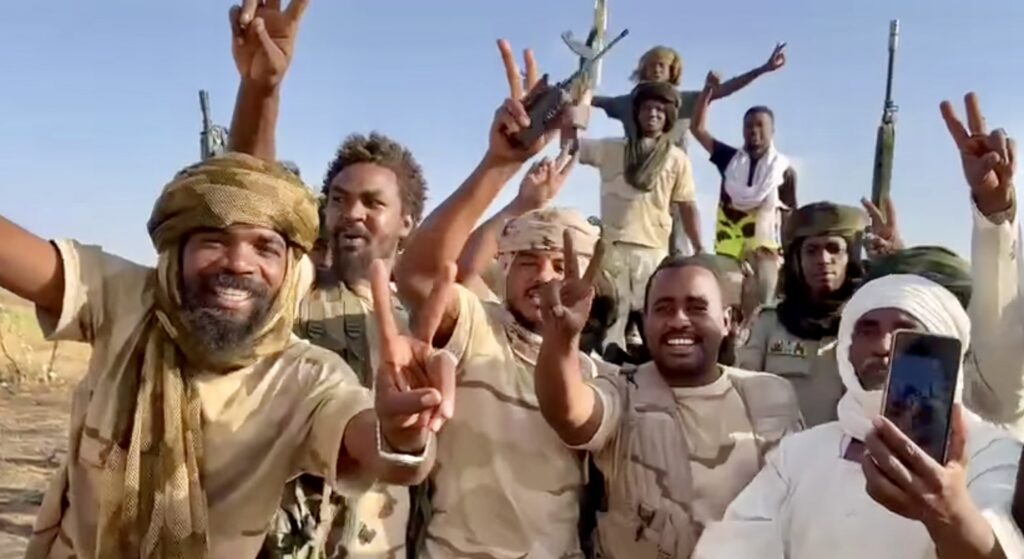
Denial
The RSF claim the attack on Ardamata did not target civilians along with military personnel, as multiple sources claim. “Our forces did not attack civilian villages in the region because all the civilians moved away three days ago from the military confrontations, what remained [in Ardamata] were fighters,” an RSF military official told Ayin, requesting anonymity since he is not authorised to speak to the press. The RSF official conceded that there were some civilian deaths during the exchange of fire between the two sides, “but not to the extent that was promoted –most of the dead were military personnel because the RSF is careful not to harm civilians. We told them (civilians) in advance to stay away from the area of clashes.” The official added they were ready to “request an international investigation into this issue.”
In addition, the spokesperson for the local Arab community, Masr Abdul Rahman, denies their involvement in the conflict. “What happened is a conflict between the army and the RSF and we have nothing to do with it,” Rahman told Ayin. According to the spokesperson, a select few from their community participated in the attack in revenge for a prior attack by a militia that killed 10 young men from the Arab community. The bodies of the 10 men were burnt and dumped along the road from Ardamata to Um Dwain, he said.
Fleeing
While these parties deny culpability, Ismail Mohamed managed to flee what he believes would have been certain death if he had remained in Ardamata. “We decided to flee from Ardamta to the border of Chad in a group of 70 people, including the wounded, women and children,” he said. “After about two kilometres, we found the RSF pursuing us –shooting around us, which forced us to disperse to different areas, we did not know who had been killed.” After hours of walking, Ismail managed to cross the border into Chad with only 19 of the original 70 with him.




